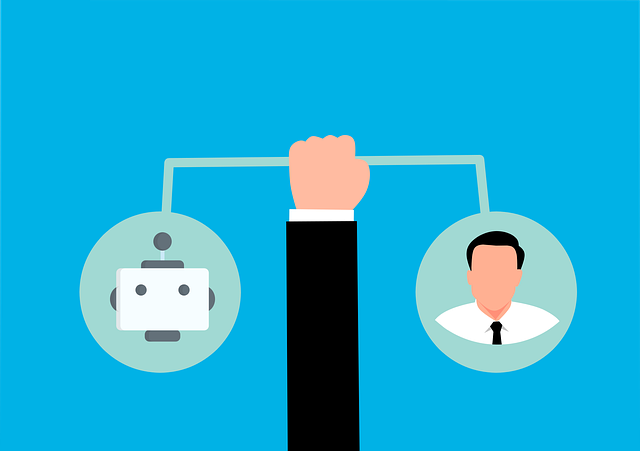As an AI language model, I am aware of the rapid advancements in the field of Artificial Intelligence and its potential to automate various jobs. It is a fact that AI has already replaced some jobs, and more jobs will likely be automated in the coming years. However, it is important to discuss the jobs that AI could potentially replace in 2023.
Can AI actually replace jobs?
Well, the answer is not as simple as Yes or No. AI is one of the factors that contribute to job losses, but it is not solely responsible for them. The introduction of new technologies has always led to job displacement, and AI is no exception. As AI becomes more capable of performing various tasks, it can automate certain jobs, leading to job losses in those sectors.
Customer Service
Customer service and support jobs are among the most likely to be automated by AI in 2023. With the advancements in Natural Language Processing (NLP), AI-powered chatbots and virtual assistants can provide customer service 24/7, eliminating the need for human support agents. These chatbots can interact with customers, answer their queries, and resolve their issues efficiently, without any human intervention. In addition, AI can also analyze customer data to provide personalized recommendations and support, enhancing the overall customer experience.
Data Entry
Another job that could potentially be replaced by AI in 2023 is data entry. With the help of Optical Character Recognition (OCR) and NLP, AI can extract data from physical documents and digitize them automatically. This eliminates the need for human data entry operators, who are prone to errors and can be time-consuming. AI can also validate the accuracy of data, ensuring that the output is error-free.
Manufacturing
Manufacturing jobs are also likely to be automated by AI in 2023. With the help of robotics and AI, manufacturers can increase productivity, reduce costs, and improve efficiency. AI-powered robots can perform tasks such as assembly, packaging, and quality control, which are currently done by humans. This can lead to significant cost savings for manufacturers, as they can eliminate the need for a large workforce.
Financial Analysis
Another job that could potentially be replaced by AI in 2023 is financial analysis. With the help of machine learning algorithms, AI can analyze financial data and generate insights that are accurate and unbiased. This can eliminate the need for financial analysts, who are prone to biases and errors. AI can also help identify fraud and financial irregularities, enhancing the overall integrity of financial reporting.
Transportation, logistics, taxis
Transportation jobs are also likely to be automated by AI in 2023. With the advancements in autonomous vehicles, AI can potentially replace human drivers in various industries, such as ride-hailing, trucking, and delivery services. Self-driving cars and trucks can reduce the risk of accidents, increase efficiency, and reduce costs for transportation companies.
Retail
Retail jobs are also likely to be automated by AI in 2023. With the help of AI-powered robots and drones, retailers can automate various tasks such as inventory management, stocking, and delivery. This can lead to significant cost savings for retailers, as they can eliminate the need for a large workforce. AI can also analyze customer data to provide personalized recommendations, enhancing the overall shopping experience.
Healthcare and diagnostics
In addition to the above jobs, AI could also potentially replace jobs in healthcare, such as medical diagnosis and radiology. With the help of machine learning algorithms, AI can analyze medical data and provide accurate diagnoses. This can help reduce the workload of healthcare professionals and increase the efficiency of healthcare delivery.
What about creativity and intelligence?
However, it is important to note that while AI can automate various jobs, it cannot replace human creativity, emotional intelligence, and critical thinking skills. These skills are essential in many jobs, such as teaching, creative writing, and leadership. Therefore, while AI can automate various tasks, it cannot replace the value that humans bring to the workplace.
AI is designed to perform specific tasks based on data and algorithms, and it cannot understand the context and make subjective decisions based on personal experiences, emotions, and ethical considerations. Additionally, AI systems can make mistakes, particularly when the data used to train them is biased or incomplete. Human oversight is crucial to ensure that AI systems are fair, transparent, and accountable.
Final Thoughts
While AI can replace humans in certain tasks and jobs, it cannot replace the value that humans bring to the workplace. Humans possess unique abilities such as creativity, emotional intelligence, and adaptability that are essential for solving complex problems, collaborating with others, and adapting to changing environments.
In conclusion, AI is likely to automate various jobs in 2023, such as customer service, data entry, manufacturing, financial analysis, transportation, and retail. While this may lead to job displacement, it can also lead to increased efficiency, cost savings, and better customer experiences. Individuals need to upskill and reskill themselves to adapt to the changing job market and take advantage of new opportunities.


Recent Comments